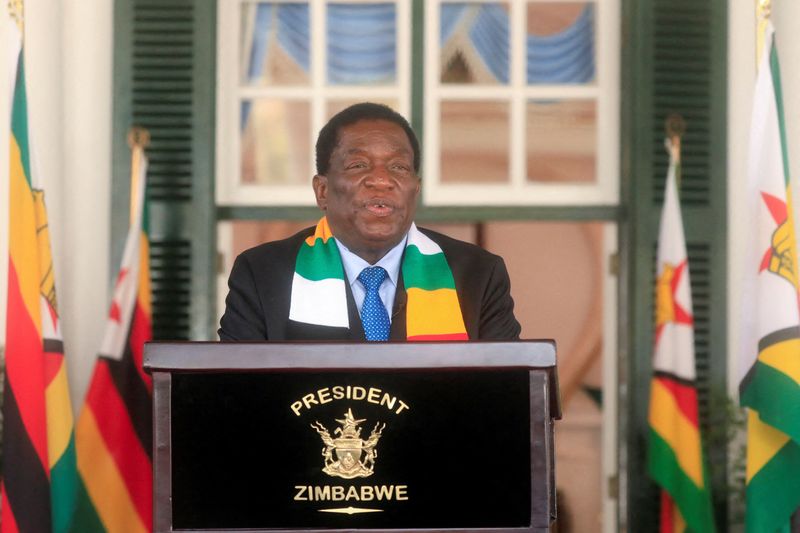JOHANNESBURG (Reuters) – South Africa and the U.S. separately on Monday noted observers’ concerns with last week’s presidential and parliamentary elections in Zimbabwe and called for peace, after the opposition called the vote a fraud.
The elections commission declared incumbent President Emmerson Mnangagwa, 80, the winner late on Saturday, but analysts have widely questioned the credibility of the result.
Mnangagwa’s main challenger, Nelson Chamisa of the opposition Citizens’ Coalition for Change party, indicated on Sunday that he was counting on the international community to apply pressure over the way the elections were conducted.
South African President Cyril Ramaphosa said his country had “taken note of the preliminary pronouncements by … the African Union (AU) and the South African Development Community (SADC) … Observer Missions,” urging all parties in Zimbabwe to work together.
SADC’s mission flagged voting delays, the banning of opposition rallies and biased state media coverage as concerns, while the head of the European Union’s observer mission said on Friday the elections took place in a “climate of fear”.
Ramaphosa’s statement showed his government was ready to help resolve the impasse between the Zimbabwean government and the opposition, foreign policy analyst Lwazi Somya said.
Somya, a senior researcher at think-tank the Southern Africa Liaison Office, said South Africa would likely try to deal with the aftermath of the elections in a multilateral format such as regional bloc SADC.
A U.S. State Department spokesperson said on Monday that the U.S. noted “systemic bias” against Zimbabwe’s opposition in the pre-election period and strongly condemned the “intimidation and disruption of lawful election observers throughout the electoral period”.
The U.S. was engaging with regional leaders to share its concerns, spokesperson Matthew Miller said.
Analysts said before the vote that the electoral playing field was heavily skewed in favour of Mnangagwa and the ruling ZANU-PF party, which has been in power for more than four decades.
ZANU-PF denies it had an unfair advantage, and Mnangagwa has encouraged those with complaints about the results to go to court.
(Reporting by Carien du Plessis and Bhargav Acharya; Editing by Alexander Winning and Josie Kao)
